
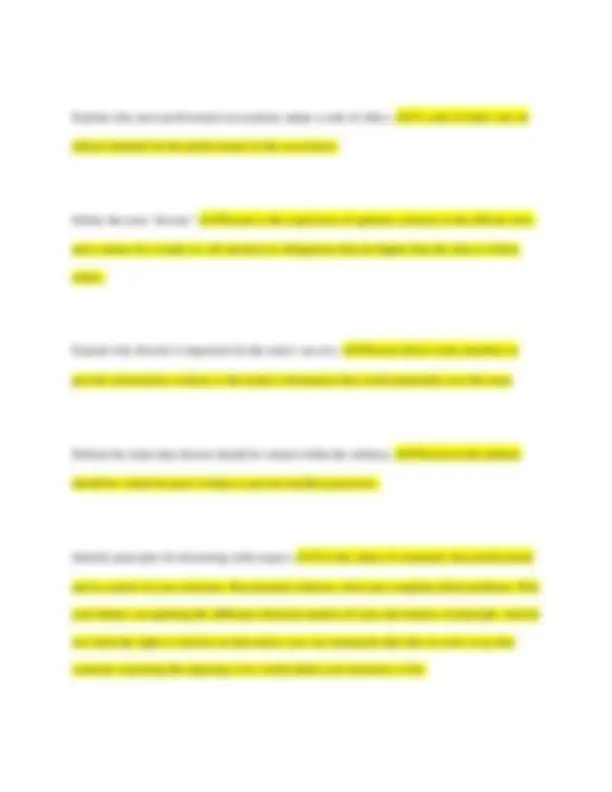
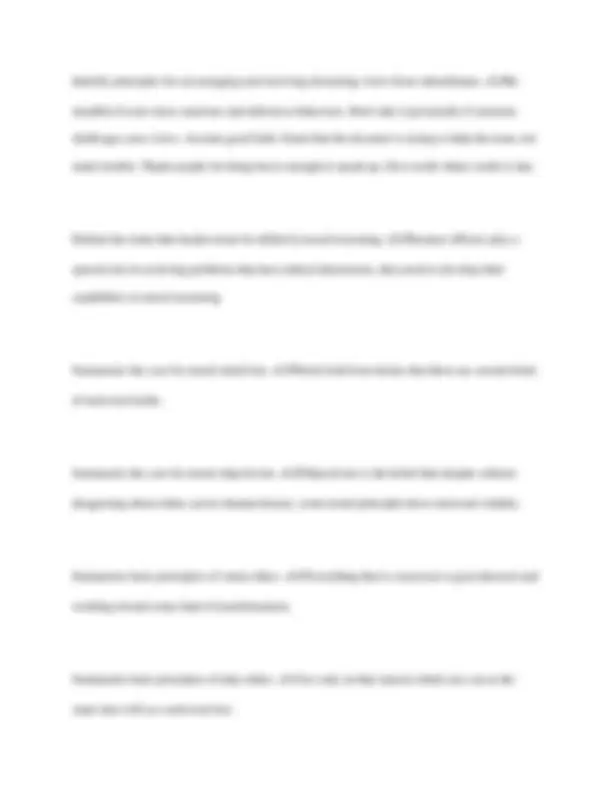
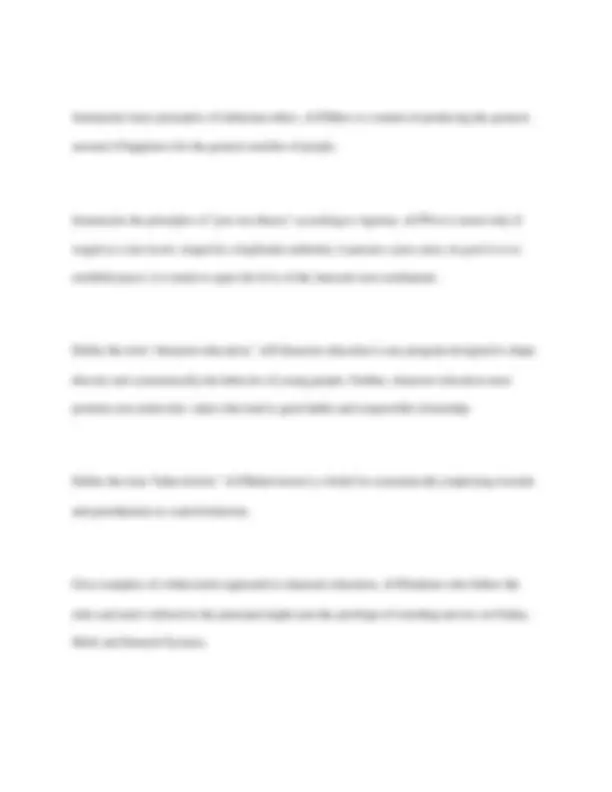
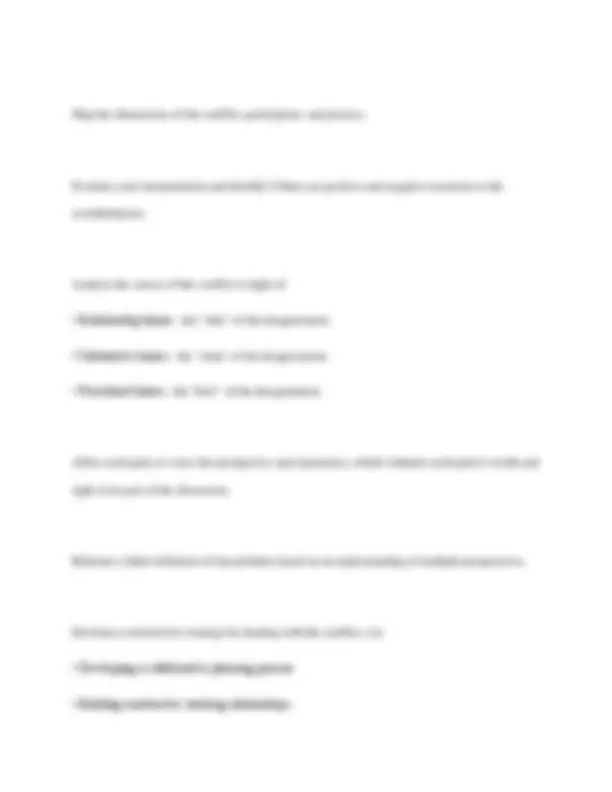
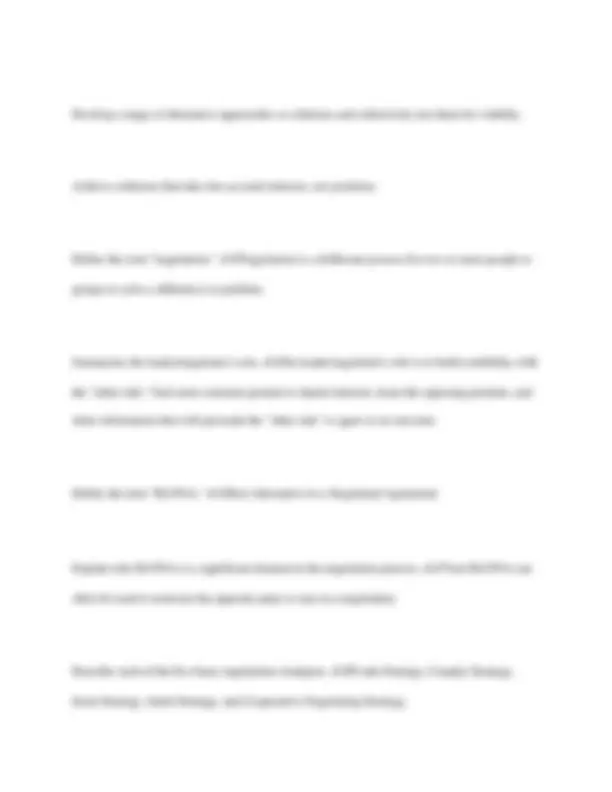
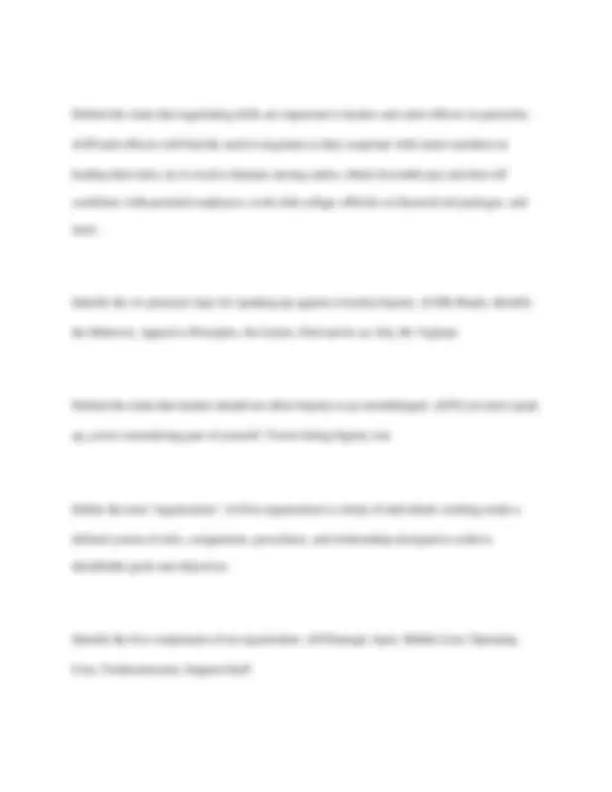
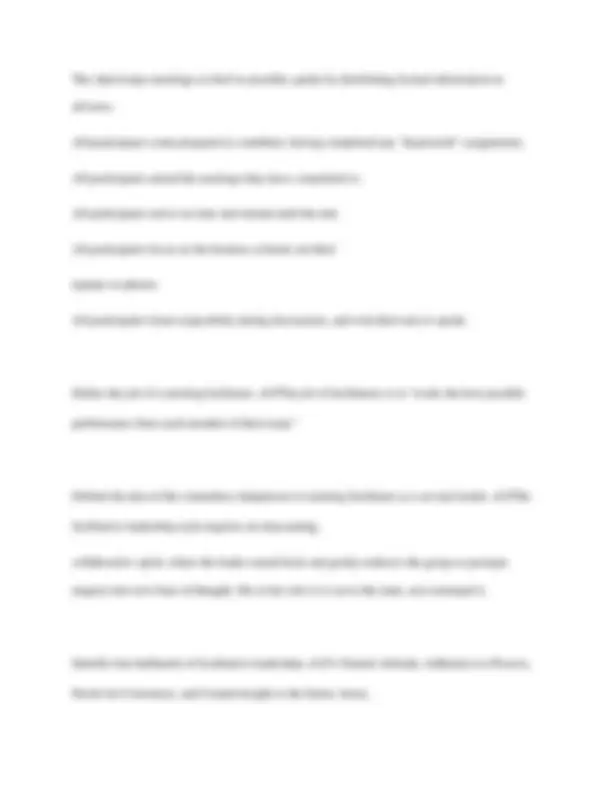
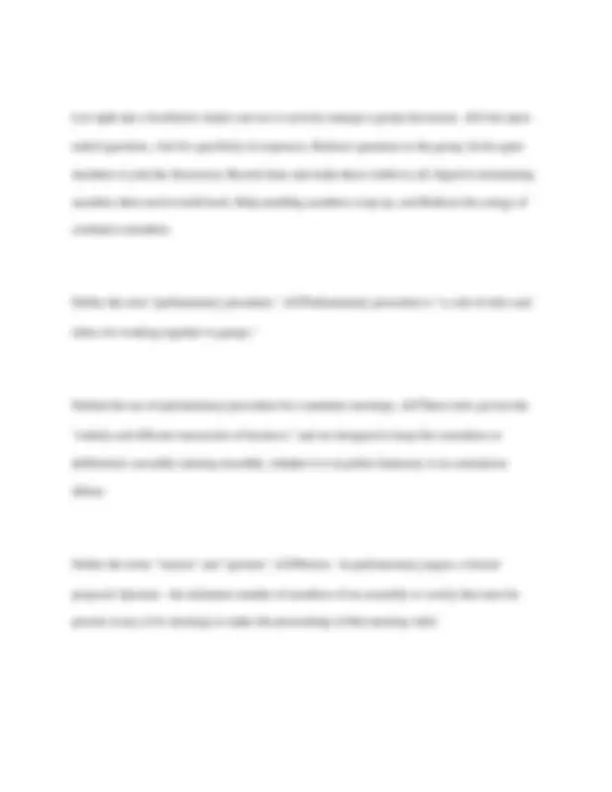
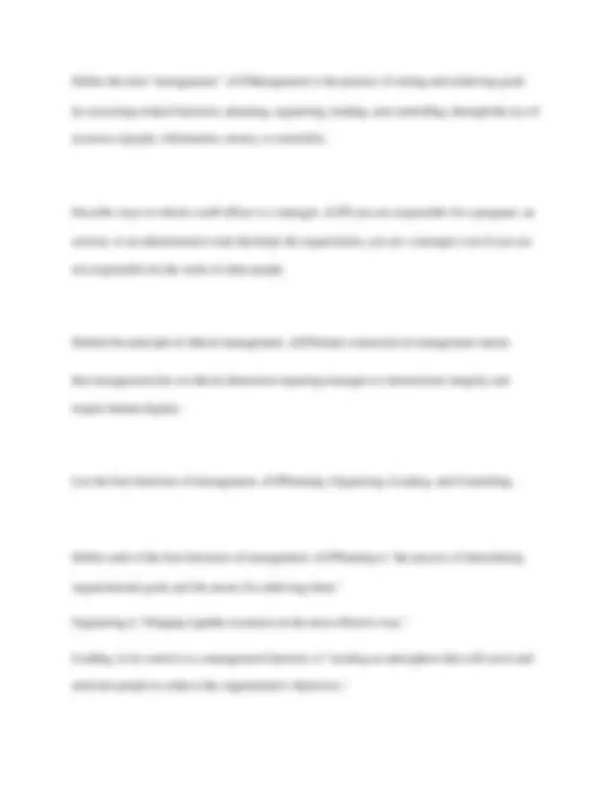
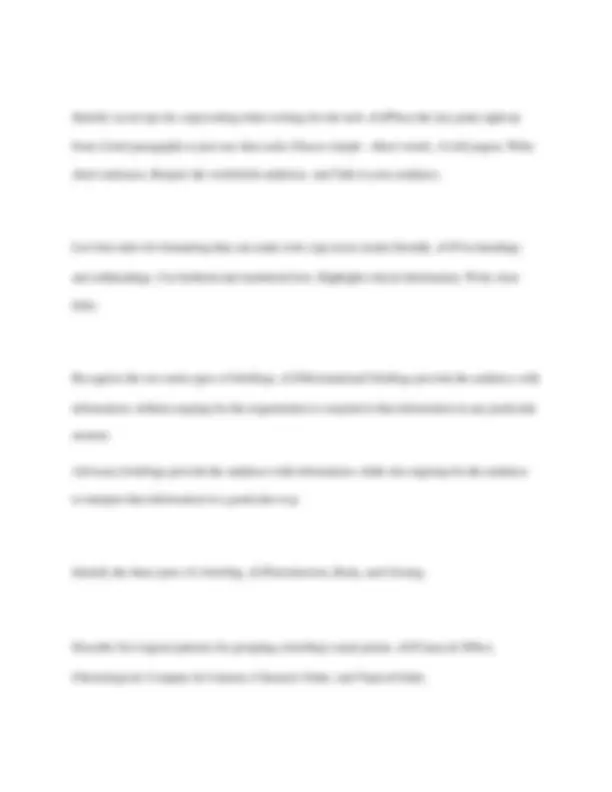
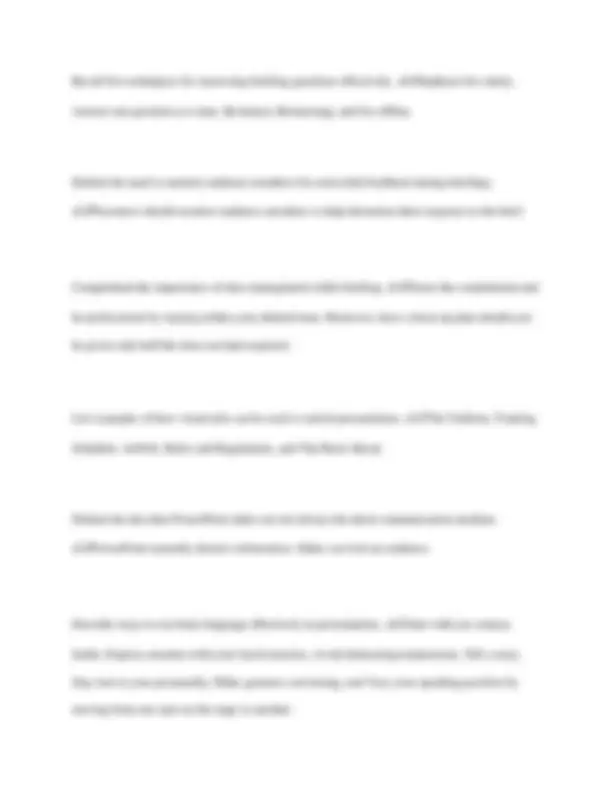
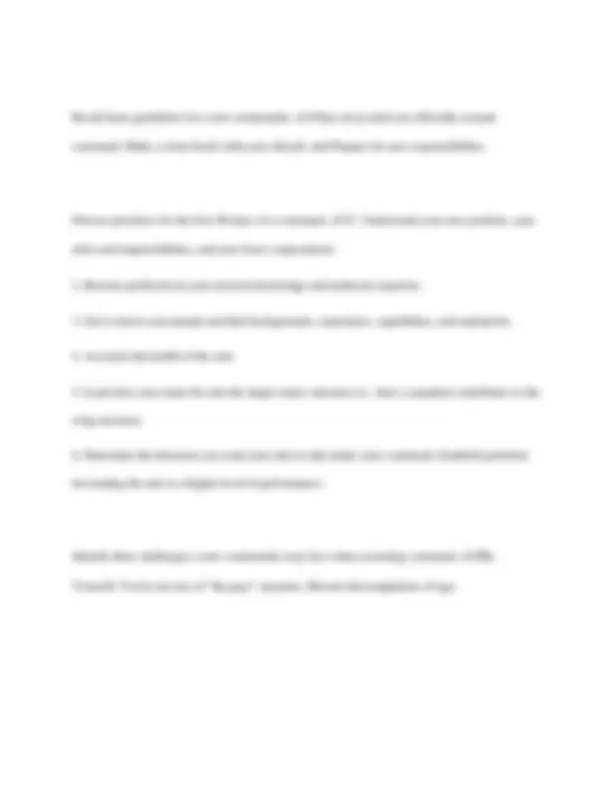
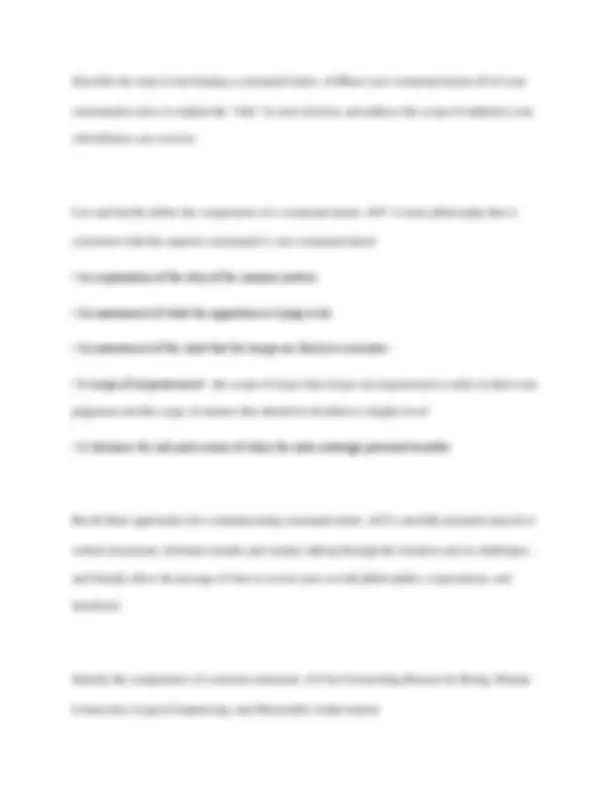
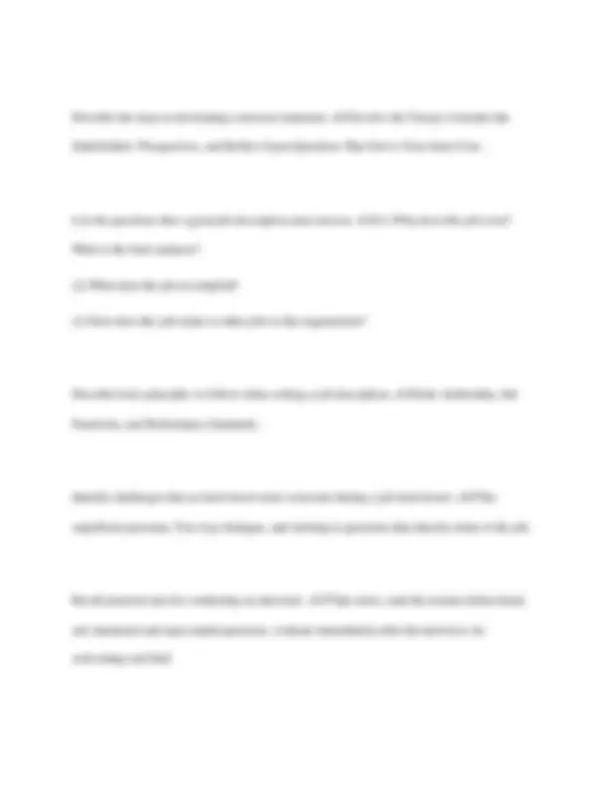
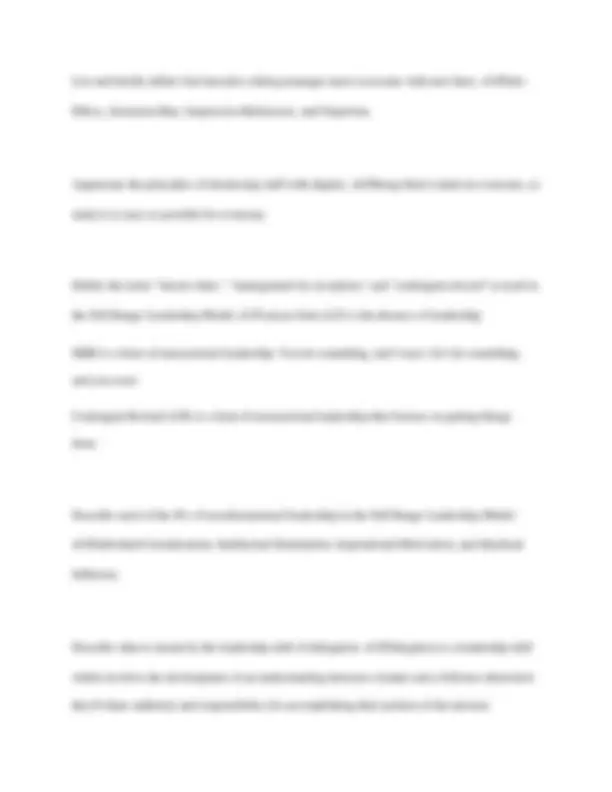
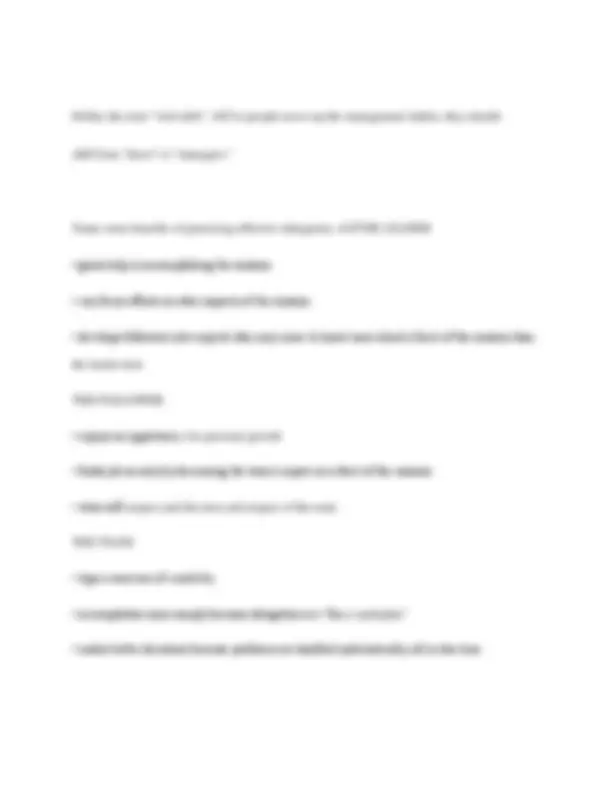
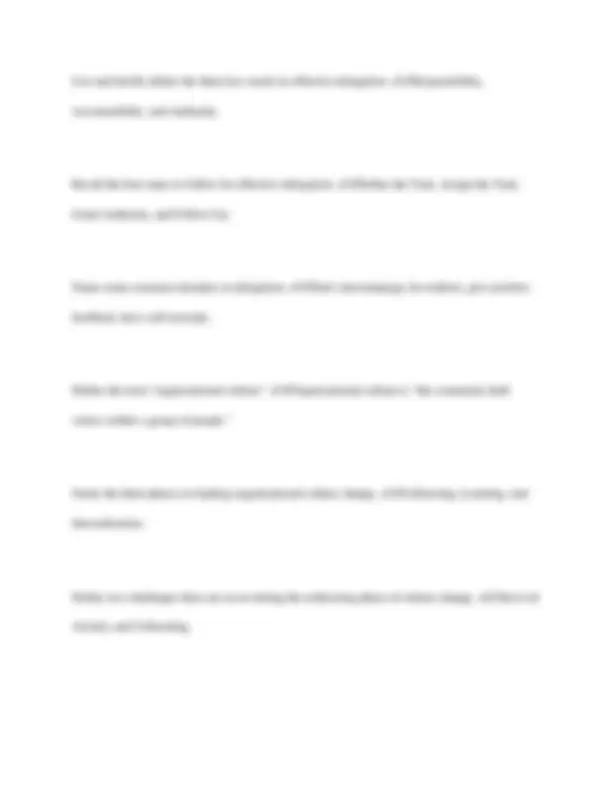
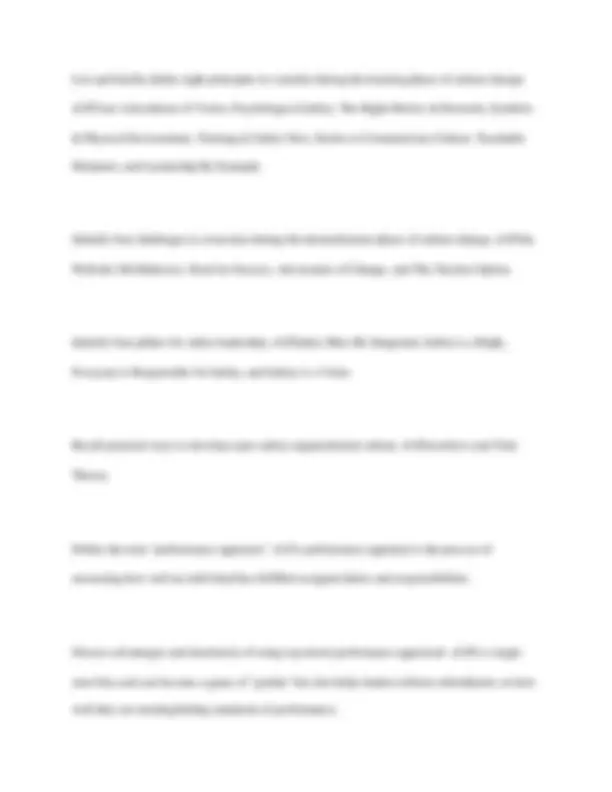
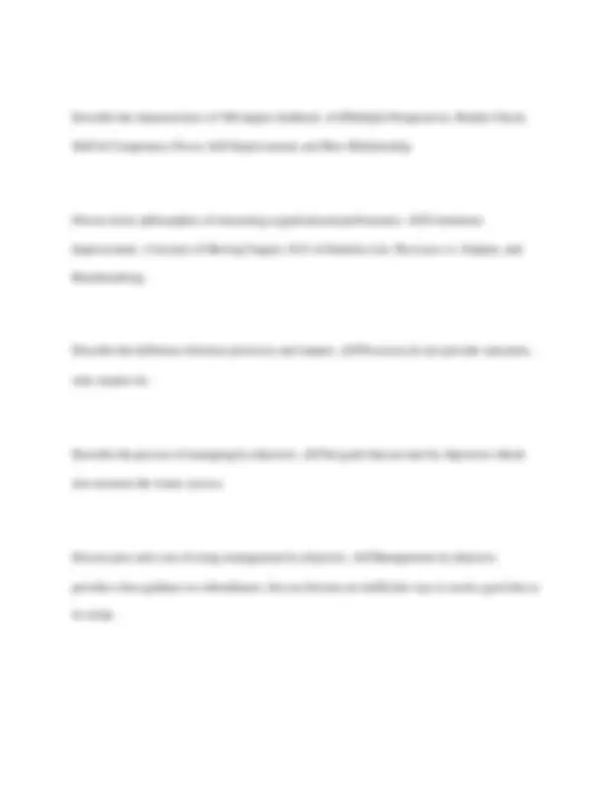


Study with the several resources on Docsity

Earn points by helping other students or get them with a premium plan


Prepare for your exams
Study with the several resources on Docsity

Earn points to download
Earn points by helping other students or get them with a premium plan
Community
Ask the community for help and clear up your study doubts
Discover the best universities in your country according to Docsity users
Free resources
Download our free guides on studying techniques, anxiety management strategies, and thesis advice from Docsity tutors
This study guide provides a comprehensive overview of leadership principles and ethics, focusing on the development of officers in the modern military. It explores key concepts such as meritocracy, direct and indirect leadership, public trust, professional associations, dissent, moral reasoning, and conflict resolution. The guide also delves into ethical frameworks like virtue ethics, duty ethics, and utilitarianism, and examines the principles of just war theory. It concludes with a discussion on character education, moral development, and conflict management, emphasizing the importance of negotiation skills and ethical leadership.
Typology: Exams
1 / 27

This page cannot be seen from the preview
Don't miss anything!




















Describe how officers' professional expectations rose with the birth of the modern military. ✔✔Any random rich son of a prominent father wouldn't necessarily be suited to the demands of the increasingly technical and complex demands of military leadership. Officers were not born; rather, they were educated and trained for the profession of arms.
Discuss how the concept of how a meritocracy guides militaries in the selection of officers. ✔✔The only title to an officer's commission shall be, in time of peace, education and professional knowledge; in time of war, distinguished valor and perception.
Defend the requirement for officers to swear an oath of office. ✔✔Responsibility should always accompany authority, so the oath (a profession of responsibility) comes before the actual commission.
Compare and contrast direct leadership with indirect leadership. ✔✔As an indirect leader, you will now lead in concert with and through other leaders.
Describe the four forms of indirect leadership. ✔✔Leadership from a Distance, Leadership through a Link, Leadership through Creations, and Upward Influence.
Explain what the term "link" means in the context of indirect leadership. ✔✔A "link" is the series of other leaders your message is transmitted through.
Defend the principle that upward influence can be a positive form of indirect leadership. ✔✔Upward influence allows subordinates to aid the team by guiding their commanders with new ideas.
Explain why organizations and leaders are expected to honor a public trust. ✔✔leaders who find themselves in powerful positions have an obligation to the public. The public, the news media, watchdog groups, and the courts take an interest in the actions of organizations and the leaders who head them.
Describe sample issues relating to corporate social responsibility. ✔✔Corruption, Stewardship, Philanthropy, Sustainability, Human Rights, and Transparency.
Describe why professionals often join professional associations. ✔✔Professionals join professional associations in order to honor their public trust.
Identify principles for encouraging and receiving dissenting views from subordinates. ✔✔Be mindful of your stress reactions and defensive behaviors. Don't take it personally if someone challenges your views. Assume good faith. Grant that the dissenter is trying to help the team, not make trouble. Thank people for being brave enough to speak up. Give credit where credit is due.
Defend the claim that leaders must be skilled in moral reasoning. ✔✔Because officers play a special role in resolving problems that have ethical dimensions, they need to develop their capabilities in moral reasoning.
Summarize the case for moral relativism. ✔✔Moral relativism denies that there are certain kinds of universal truths.
Summarize the case for moral objectivism. ✔✔Objectivism is the belief that despite cultures disagreeing about ethics across human history, some moral principles have universal validity.
Summarize basic principles of virtue ethics. ✔✔Everything that is conscious is goal-directed and working toward some kind of transformation.
Summarize basic principles of duty ethics. ✔✔Act only on that maxim which you can at the same time will as a universal law.
Summarize basic principles of utilitarian ethics. ✔✔Ethics is a matter of producing the greatest amount of happiness for the greatest number of people.
Summarize the principles of "just war theory" according to Aquinas. ✔✔War is moral only if: waged as a last resort, waged by a legitimate authority, it pursues a just cause, its goal is to re- establish peace, it is made to spare the lives of the innocent non-combatants.
Define the term "character education." ✔✔character education is any program designed to shape directly and systematically the behavior of young people. Further, character education must promote non relativistic values that lead to good habits and responsible citizenship.
Define the term "behaviorism." ✔✔Behaviorism is a belief in systematically employing rewards and punishments to control behavior.
Give examples of a behaviorist approach to character education. ✔✔Students who follow the rules and aren't referred to the principal might earn the privilege of watching movies on Friday; Merit and Demerit Systems.
Define the term "conflict," in the context of "interpersonal conflict." ✔✔Incompatible thoughts and behaviors between two people.
Defend the claim that leaders must possess good conflict resolution skills. ✔✔Leaders are expected not only to be proficient in managing the conflicts that arise in their lives, but in helping others manage conflict as well.
Describe each of the five types of conflict. ✔✔Parallel Conflict, Displaced Conflict, Misattributed Conflict, Latent Conflict, and False Conflict.
Describe what occurs during each of the five phases of the model of interpersonal conflict. ✔✔Distal Context, Proximal Context, Conflict Interaction, Proximal Outcomes, Distal Outcomes.
Describe some of the key points for managing conflict effectively. ✔✔Describe what you see through factual observation.
Explore and consider the universe of interpretations to the event/behavior.
Map the dimensions of the conflict, participants, and process.
Evaluate your interpretation and identify if there are positive and negative reactions to the event/behavior.
Analyze the causes of the conflict in light of:
Allow each party to voice her perspective and experience, which validates each party's worth and right to be part of the discussion.
Reframe a fuller definition of the problem based on an understanding of multiple perspectives.
Develop a constructive strategy for dealing with the conflict, via:
Defend the claim that negotiating skills are important to leaders and cadet officers in particular. ✔✔Cadet officers will find the need to negotiate as they cooperate with senior members in leading their units, try to resolve disputes among cadets, obtain favorable pay and time-off conditions with potential employers, work with college officials on financial aid packages, and more.
Identify the six practical steps for speaking up against everyday bigotry. ✔✔Be Ready, Identify the Behavior, Appeal to Principles, Set Limits, Find and be an Ally, Be Vigilant.
Defend the claim that leaders should not allow bigotry to go unchallenged. ✔✔If you don't speak up, you're surrendering part of yourself. You're letting bigotry win
Define the term "organization." ✔✔An organization is a body of individuals working under a defined system of rules, assignments, procedures, and relationships designed to achieve identifiable goals and objectives.
Identify the five components of an organization. ✔✔Strategic Apex, Middle Line, Operating Core, Technostructure, Support Staff
Discuss four reasons that support the use of hierarchical organizational structures. ✔✔Hierarchies Promote Accountability, Hierarchies Allocate Authority, Hierarchies Are Easy to Manage, Hierarchies Create Efficiencies.
Discuss two reasons that support the use of free-form organizational structures. ✔✔Hierarchies Get in the Way, Free-Form, Self-Directed Teams Are Agile.
Define the term "committee." ✔✔A committee is a group of people entrusted to study issues, make recommendations or decisions, or perform some kind of service to a larger group.
List three reasons why leadership by committee can be helpful. ✔✔Good Ideas Can Come from Anybody, Committees Can Be Smarter Than Individuals, and Group Action Adds Legitimacy to Decisions.
Define the term "standing committee." ✔✔A permanent committee that meets regularly.
Define the term "select committee." ✔✔A temporary committee that is selected for a special purpose.
The chair keeps meetings as brief as possible, partly by distributing factual information in advance.
All participants come prepared to contribute, having completed any "homework" assignments.
All participants attend the meetings they have committed to.
All participants arrive on time and remain until the end.
All participants focus on the business at hand, not their
laptops or phones.
All participants listen respectfully during discussions, and wait their turn to speak.
Define the job of a meeting facilitator. ✔✔The job of facilitators is to "evoke the best possible performance from each member of their team."
Defend the idea of the committee chairperson or meeting facilitator as a servant leader. ✔✔The facilitative leadership style requires an unassuming,
collaborative spirit, where the leader stands back and gently redirects the group or prompts enquiry into new lines of thought. His or her role is to serve the team, not command it.
Identify four hallmarks of facilitative leadership. ✔✔A Neutral Attitude, Adherence to Process, Desire for Consensus, and Counterweight to the Status Arena.
List eight tips a facilitative leader can use to actively manage a group discussion. ✔✔Ask open- ended questions, Ask for specificity in responses, Redirect questions to the group, Invite quiet members to join the discussion, Record ideas and make them visible to all, Signal to dominating members their need to hold back, Help rambling members wrap up, and Redirect the energy of combative members.
Define the term "parliamentary procedure." ✔✔Parliamentary procedure is "a code of rules and ethics for working together in groups."
Defend the use of parliamentary procedure for committee meetings. ✔✔These rules govern the "orderly and efficient transaction of business," and are designed to keep the committee or deliberative assembly running smoothly, whether it is in perfect harmony or in contentious debate.
Define the terms "motion" and "quorum." ✔✔Motion - In parliamentary jargon, a formal proposal. Quorum - the minimum number of members of an assembly or society that must be present at any of its meetings to make the proceedings of that meeting valid.
Controlling is the process of monitoring progress toward the organization's goals and making changes, as necessary.
Define the term "project." ✔✔A project is "a set of coordinated activities, with a specific start and finish, pursuing a specific goal, with constraints on time, cost, and resources."
Identify five key players in project management. ✔✔The Project Sponsor, The Project Manager, Assistant Project Managers, Stakeholders, and Customers.
Recognize tasks in each of the four phases in the project lifecycle. ✔✔PROPOSAL PHASE - Someone suggests a good idea to someone who has authority to ok the project.
PLANNING PHASE - The team decides how to accomplish the project's goals.
EXECUTION PHASE - The team builds the product and delivers it to the customer.
Identify five components of a project brief. ✔✔Goal Statement, Project Narrative, Key Data, Deliverables, and Action Recommended.
Define the term "opportunity cost." ✔✔Opportunity Cost is what you give up for something else.
Describe the five components of a Project Initiating Document. ✔✔Org Chart, Gantt Chart, Budget, Governance Plan, and Comm Plan.
List four checkpoints that can be used to monitor success during a project's Execution Phase. ✔✔Staff meetings, Inspections, Schedules, Budgets.
Identify three elements in a project's Review & Concluding Phase. ✔✔Feedback Instruments, Recognition Programs, and Administrative Close-Out.
State the secret of writing effectively for the boss. ✔✔It helps to have a close working relationship with him or her so that you not only know what basic message must be delivered but have a sense for the various complexities framing the central issue.
Defend the use of a staff package to receive formal project approval. ✔✔Great ideas will die unless properly staffed.
Describe differences in writing for the web versus writing for print. ✔✔People go to the web to get information quickly. The audience is not in the mood for a leisurely, artfully crafted read. They browse; they don't read every word.
Recall five techniques for answering briefing questions effectively. ✔✔Rephrase for clarity, Answer one question at a time, Be honest, Boomerang, and Go offline.
Defend the need to monitor audience members for nonverbal feedback during briefings. ✔✔Presenters should monitor audience members to help determine their response to the brief.
Comprehend the importance of time management while briefing. ✔✔Honor the commitment and be professional by staying within your allotted time. Moreover, have a back-up plan should you be given only half the time you had expected.
List examples of how visual aids can be used to enrich presentations. ✔✔The Uniform, Training Schedule, Airfoils, Rules and Regulations, and The Read Ahead.
Defend the idea that PowerPoint slides are not always the ideal communication medium. ✔✔PowerPoint naturally distorts information. Slides can fool an audience.
Describe ways to use body language effectively in presentations. ✔✔Start with eye contact, Smile, Express emotion with your facial muscles, Avoid distracting mannerisms, Tell a story, Stay true to your personality, Make gestures convincing, and Vary your speaking position by moving from one spot on the stage to another.
Recall basic guidelines for a new commander. ✔✔Stay away until you officially assume command, Make a clean break with your old job, and Prepare for new responsibilities.
Discuss priorities for the first 90-days of a command. ✔✔1. Understand your new position, your roles and responsibilities, and your boss's expectations.
Identify three challenges a new commander may face when assuming command. ✔✔Be Yourself, You're not one of "the guys" anymore, Beware the temptations of ego.